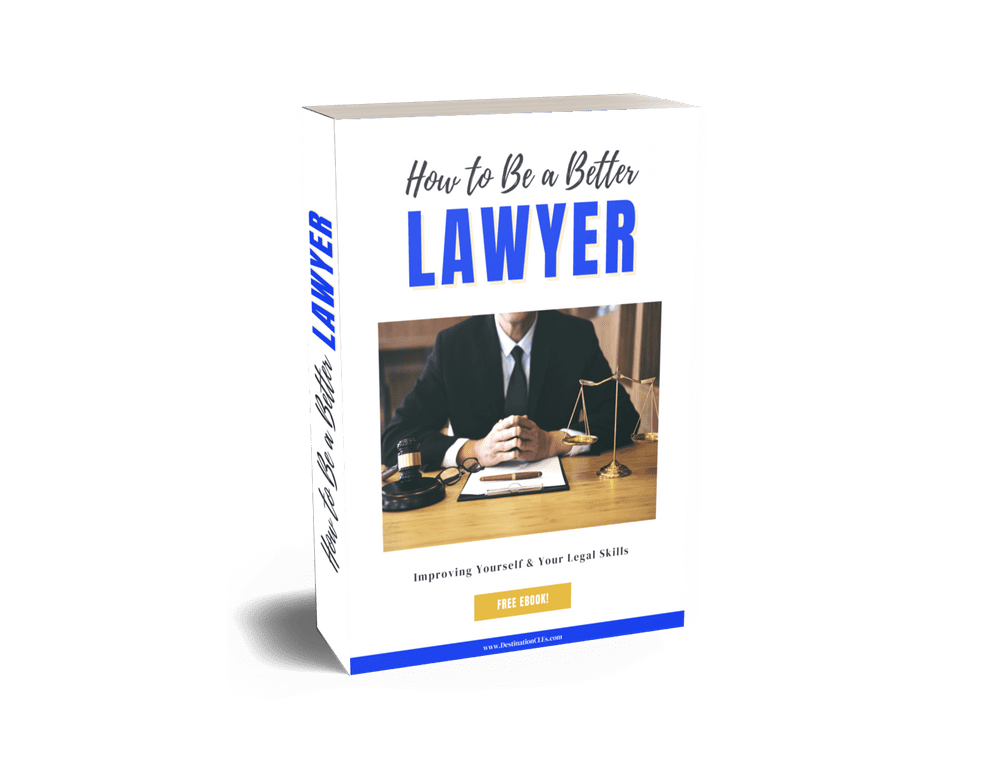Learning how to establish a client lawyer relationship can be quite a challenge. Indeed, when it’s time to take on new clients and grow your legal practice, this usually becomes the #1 concern.
Establishing a solid client lawyer relationship can be daunting for many. It’s what separates an average attorney from an exceptional one.
If you’re unsure about how to build these relationships effectively, you’ll struggle to reach the level of excellence you want to build for your legal practice.
Simply put, creating robust attorney-client bonds isn’t easy!
Even seasoned litigators will sometimes lose out high-profile cases when they can’t fully gain their prospective client’s trust right from the start.
Here’s what you need to know about creating a strong client lawyer relationship.
The Importance of A Strong Client-Lawyer Relationship
A strong lawyer-client relationship is the bedrock of successful legal services. When you foster a good relationship with your client, it can significantly improve case outcomes and boost overall client satisfaction.
A survey by Clio, however, paints a less-than-ideal picture. In this survey, only 60% of law firms reported consistent communication with their clients. This suggests that many attorneys might be underestimating the power of having a strong relationship.
Maintaining Positive Attorney Client Relations: The Key to Success
Maintaining positive attorney-client relations is not just about providing top-notch advice; it’s also about ensuring that clients feel valued and understood throughout complex legal matters.
This begins from the moment an initial consultation starts right through to resolution or trial verdicts. It involves quality and frequent client communications which directly impacts how well a client understands their position within our often confusing legal system.
Nurturing Relationships for Better Outcomes
Fostering these relationships isn’t merely optional—it’s essential in every stage. These relationships are integral to providing legal advice, ensuring that clients who frequently seek legal services are not overwhelmed by complex legal terminology. This way, they can maintain a clear understanding of each step in the process.
Here’s a few tips for nurturing your client relationships:
- Create open lines of communication between the clientele and yourself or the client’s team of lawyers.
- Educate your clients on ongoing developments related to their cases.
- Show empathy towards situations your client is facing. Dealing with intricate issues surrounding laws & regulations can be very stressful.
Related: Exploring Legal Education and Other Things to Do in Havana, Cuba

Understanding the Lawyer-Client Relationship
An effective attorney-client relationship is no ordinary bond—it’s a cornerstone of the legal industry. It’s a matter of confidence, secrecy, and esteem. And as you’ll find in The Code of Conduct, these elements are non-negotiable when it comes to maintaining good client relationships.
The Role of Attorney-Client Privilege
Do you know what attorney-client privilege really entails for your practice? Let’s break it down.
Essentially, this principle safeguards clients’ rights while fostering open communication between lawyers and their clients. This isn’t just legalese—it directly contributes to building stronger relationships with your clients by instilling confidence and trust in the professional relationship.
In essence, this privilege gives your client peace of mind that whatever they share will stay confidential. This is a key aspect in strengthening any lawyer-client relationship.
Here are 3 reasons why keeping attorney-client privilege is critical in the field of law:
- Clients can freely discuss sensitive information without fear, knowing full well that their secrets won’t be disclosed elsewhere.
- It promotes honesty from both parties, which aids significantly when preparing legal defenses or strategies for other legal matters.
- Last but not least, understanding this concept doesn’t only protect the client’s interest. It also helps build an unshakeable foundation based on confidence and trust within the professional conduct established.
Building Trust from the Start
It goes without saying, but the cornerstone of a strong attorney-client relationship is trust. Demonstrating to clients that they can depend on you is vital in establishing a solid attorney-client relationship.
Setting Clear Expectations
Remember that first impressions last. So, to build trust, it starts with setting clear expectations right at the beginning. This means breaking down complex legal issues into understandable terms and laying out what exactly your potential client should anticipate throughout their case journey.
A research study published by Criminal Justice Policy Review revealed that when lawyers are open and communicative regarding the entire process, it significantly boosts attorney-client relationships, as customers feel more confident in their lawyer’s capacity to effectively manage their cases.
Returning Client Phone Calls Promptly
Besides managing expectations well, another key aspect of building solid relationships is prompt communication. When a returning client calls with inquiries or concerns regarding ongoing real estate client cases or any other matter related to their case, it’s best to be quick to answer questions.
An article published by Lawyerist Magazine suggests that timely responses can help improve attorney-client relations dramatically while enhancing professional conduct standards within law firms.
Responding swiftly and efficiently – even if it’s simply acknowledging receipt of an inquiry before providing sufficient information later – sends across a powerful message: You’re important and we value your time. And guess what? That builds TRUST!
Related: How to Get Clients As a Lawyer – How to Generate Legal Clients

Enhancing Communication with Legal Client Relationship Management Software
In the realm of legal services, communication is key. Creating and sustaining solid lawyer-customer bonds is not just about exchanging data; it’s about forming a connection. Thankfully, technology has made it simpler to construct and maintain strong attorney-client relationships than ever before.
The game-changer here is something called legal client relationship management (CRM) software. This isn’t your run-of-the-mill tech tool—it’s a revolution in how lawyers connect with their clients.
This type of innovative platform acts as an all-in-one hub for real-time case updates, making sure that every step taken towards resolving a client’s case doesn’t go unnoticed by those who matter most—the clients themselves. But there’s more to it: transparency comes built into these systems too, providing access to relevant legal documents at any time.
An Example Worth Following
A standout example within this space would be Clio—a comprehensive solution designed specifically for law firms seeking to improve attorney-client relations through better workflow management and prompt responses.
Clio takes routine tasks like scheduling reminders off your plate so you can focus on doing actual legal work. The result? More productivity without compromising on quality or customer satisfaction. Now that sounds like winning!
Tech Meets Trust
No longer are the days where lawyer-client relationships were strained due to a lack of communication channels or misunderstandings over complex legalese in documentation. With tools such as these at their disposal, attorneys now have everything they need right under one roof, ensuring no detail gets missed out while keeping everyone involved fully informed throughout the legal process.
We’re talking full visibility into legal procedures—from initial consultation stages up until the resolution phase—with easy accessibility thrown into the mix, too. So whether it’s reviewing drafts of proposed agreements or checking the status of ongoing cases, rest assured knowing nothing slips through the cracks any more thanks to the technology-driven solutions that exist today.
Overcoming Challenges in Lawyer-Client Relationships
In the world of legal services, maintaining strong attorney-client relations can sometimes feel like navigating a minefield. Potential issues such as pricing disputes, communication breakdowns, and time management inefficiencies are common roadblocks on this path. It’s startling to note that research indicates an average lawyer only bills 2.5 hours out of their standard 8-hour workday.
The ABA Model Rules of Professional Conduct Rule 1.3 emphasizes using diligence and promptness when managing a client’s case, which helps avoid delays that could negatively impact both the outcome and overall client experience.
Managing Ongoing Client Cases
Maintaining positive relationships with ongoing clients requires strategic planning due to the complex transactions involved in law cases along with extended timelines.
Here are 2 key elements to keep in mind when managing your client cases:
- Give frequent updates about progress: Keeping your current clients informed at every stage will help them understand complexities better while also demonstrating transparency from your end.
- Leverage technology: Efficient use of legal software solutions designed specifically for your law practice can streamline workflows, ensuring timely completion of tasks related to the case.
This not only demonstrates professionalism, but also a commitment towards building trust within the attorney-client relationship.
Creating a Client-Centered Law Firm
A key strategy in achieving this is by running a client-centered law firm where every process aligns with what’s best for clients seeking legal assistance.
This model prioritizes effective communication while striving to understand the fears, hopes, and concerns related to their case or situation. This results in tailored solutions leading to improved satisfaction rates among clientele.
Related: How to Improve Communication Skills as a Lawyer: 5 Effective Tips

Delivering Eduvacation℠ Experiences through Destination CLEs
In the fast-paced world of legal services, maintaining strong client relationships goes a long way. But how can lawyers find time to enhance their skills while also managing clients’ expectations? Enter Destination CLEs conferences – a unique blend of education and vacation.
This combination allows attorneys to not only earn necessary continuing education (CLE) credits, but it’s also an effective way to unwind from daily routines. The change of scenery often sparks fresh perspectives that could indirectly benefit clients, too.
The best part? Destination CLEs are held in some of the most beautiful locations across the United States and internationally, offering a delightful escape from the usual office environment. These Eduvacation℠ conferences provide an innovative way to learn, relax, and recharge.
So why wait? Book your next Destination CLE today and transform your learning experience into an unforgettable adventure.
You’ll gain invaluable knowledge while creating memories that will last a lifetime.
Visit Destination CLEs to start planning your educational vacation now!
Conclusion
Establishing a strong client lawyer relationship is the cornerstone of successful legal practice. This bond, built on trust and mutual respect, has a direct impact on case outcomes and client satisfaction.
When building these relationships in your own legal practice, remember that open communication is key.
Additionally, don’t forget that there are many tools on the market today that can help streamline your workflow, protect client’s information, and ensure responses in a timely manner.
Also, always keep ethical guidelines in mind when communicating with your clients.
And if you’re an attorney looking for ways to enhance your skills while also enjoying some downtime, consider booking an Eduvacation℠ getaway with Destination CLEs, where education meets vacation!
Destination CLEs offers unique opportunities for Continuing Legal Education conferences in beautiful locations around the world. Here, you can learn more about establishing effective client-lawyer relationships amidst breathtaking scenery.
Click here to book your next Eduvacation℠ experience today!
Related:
- Exploring Legal Education and Other Things to Do in Havana, Cuba
- How to Get Clients As a Lawyer – How to Generate Legal Clients
- How to Improve Communication Skills as a Lawyer: 5 Effective Tips

